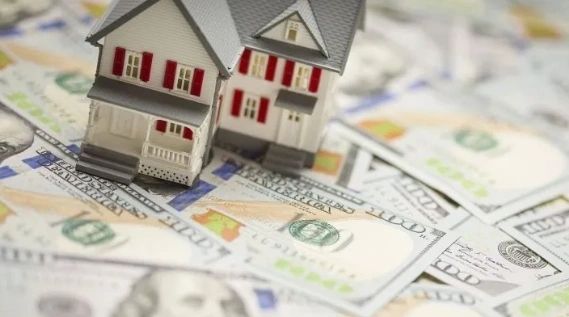BuySellBA
Administrator
Real estate market pause and transaction decline: When will a sector that was once a winner recover? - Ambito Financiero

Source:

 www.ambito.com
www.ambito.com
September 09, 2025
By Jose Luis Cieri
The dollar's surge and the mortgage freeze temporarily paralyzed the sector. Experts analyze the timeframe, risks, and conditions for improvement.

Several transactions fell through between yesterday and today. The rise of the dollar and the mortgage freeze complicate the sector and access to home ownership.Pexels
The Argentine real estate market entered a period of intense uncertainty following the election results in the province of Buenos Aires. The government's defeat resulted in a financial shock that immediately impacted real estate transactions.
The contrast is stark. The sector had been on a winning streak, with rising transactions and record deed sales in both the City of Buenos Aires and the province ( more than 20,000 had been completed in July between the two districts ). After years of decline, activity was showing signs of recovery, driven by mortgage loans, greater liquidity, and still-low prices in dollars at bargain prices. The Black Monday following the elections cut short that momentum and ushered in a period of waiting.
Marcelo Ghio , real estate broker, university professor, and owner of Tasaciones Ghio, part of the LIKE Propiedades network, described: “In our real estate agency, it's clear that many people are waiting for political signals before moving forward. The result was the worst news since December 2023.”
The rate hike reinforced the slowdown. Banco Macro brought the nominal annual mortgage rate to nearly 15%, and Banco Galicia set it at 11.5%. With this level of increase, many credit transactions were either under review or deferred altogether.
Ghio explained: “We can't say that deals are falling through, but many sellers prefer to wait 48 to 96 hours to discover prices.”
In a dollarized market, the exchange rate benchmark determines the pulse of transactions. Experts agree that what was signed before the election will still be finalized in September, but the question mark looms from October onward, when the true impact of the instability will be measured.
Braña also highlighted the increasing delays in banking operations: "Some time ago, a transaction took between 60 and 90 days. Today, we're talking at least 120 days, and in some cases, five months, with files still pending."
The broker identified two decisive factors: the rise of the dollar, first from $1,200 to $1,300 and then with the breach of the floating band , and the rise in interest rates that made mortgage loans unviable. "Those who had agreements with previous rates must turn to family or friends to cover the differences. The bank lends pesos, and with the rise in the exchange rate, it becomes impossible to reach the dollar amount agreed upon with the seller," he said.

If mortgage credit does not return immediately, operations will again depend on dollar bills, awaiting greater certainty.
The behavior of the parties also reflects the tension. “The buyer who holds the bills waits, because he assumes prices may drop. The seller, if he needs to, lowers the price; if not, he decides to wait,” Altamirano added.
When asked how the deed fees are settled, she explained: "They are calculated in pesos based on the Banco Nación exchange rate from the previous business day. The sale price, on the other hand, is agreed upon in dollars and is established in the reservations and purchase and sale tickets."
Regarding their recommendations in this scenario, he stated: “Housing in Argentina is a necessity and something highly valued. Once the deed is signed, the safest course of action is to honor the agreement. The dollar fluctuates frequently, but the deed provides definitive legal security. Postponing indefinitely creates more uncertainty than certainty.”
If these variables are met, the sector could resume the positive trend it showed in the first half of the year, with more deeds and increased activity in the city and the province.
Braña was more cautious: "This situation is here to stay for at least sixty days. Only at the end of October, with the general legislative elections, will the possibility of a reshuffle open up."
Altamirano noted that election years tend to be calmer: "This abrupt paralysis will last as long as it takes for rates and the dollar to stabilize."
Black Monday left the real estate market on hold. With transactions under review, deeds delayed, and mortgage loans on hold, recovery will depend on factors outside the dynamics of the real estate market.
As Lukaszewicz concluded: "The notary is there to advise, support, and reassure the actors in the operation. In a country of fluctuations, writing remains the only instrument that provides definitive security."
www.buysellba.com

Source:

Pausa del mercado inmobiliario y caída de operaciones: cuándo podrá recuperarse un sector que venía en ganador
El salto del dólar y el freno en hipotecas paralizaron el sector de forma momentánea. Expertos analizan plazos, riesgos y condiciones para la mejoría.
September 09, 2025
By Jose Luis Cieri
The dollar's surge and the mortgage freeze temporarily paralyzed the sector. Experts analyze the timeframe, risks, and conditions for improvement.

Several transactions fell through between yesterday and today. The rise of the dollar and the mortgage freeze complicate the sector and access to home ownership.Pexels
The Argentine real estate market entered a period of intense uncertainty following the election results in the province of Buenos Aires. The government's defeat resulted in a financial shock that immediately impacted real estate transactions.
The contrast is stark. The sector had been on a winning streak, with rising transactions and record deed sales in both the City of Buenos Aires and the province ( more than 20,000 had been completed in July between the two districts ). After years of decline, activity was showing signs of recovery, driven by mortgage loans, greater liquidity, and still-low prices in dollars at bargain prices. The Black Monday following the elections cut short that momentum and ushered in a period of waiting.
Immediate impact
In the first session following the election results, the "blue" dollar traded between $1.385 and $1.420, peaking mid-morning and closing lower. Argentine stocks and bonds closed in the red, and banks consolidated their decision to pause their mortgage loans.Marcelo Ghio , real estate broker, university professor, and owner of Tasaciones Ghio, part of the LIKE Propiedades network, described: “In our real estate agency, it's clear that many people are waiting for political signals before moving forward. The result was the worst news since December 2023.”
The rate hike reinforced the slowdown. Banco Macro brought the nominal annual mortgage rate to nearly 15%, and Banco Galicia set it at 11.5%. With this level of increase, many credit transactions were either under review or deferred altogether.
Operations on hold
Deeds and reservations have also been put on hold. Although calls and inquiries continue, exchange rate volatility discourages immediate closings.Ghio explained: “We can't say that deals are falling through, but many sellers prefer to wait 48 to 96 hours to discover prices.”
In a dollarized market, the exchange rate benchmark determines the pulse of transactions. Experts agree that what was signed before the election will still be finalized in September, but the question mark looms from October onward, when the true impact of the instability will be measured.
The weight of the official dollar
Alejandro Braña , a real estate expert and member of the Buenos Aires Real Estate Association, warned that the biggest problems arise in transactions with financing in pesos and payment in dollars: "The official dollar was trading at $1,160 in June, and today, even after the drop, it's around $1,435. For a loan of $80,000, the difference the buyer must face amounts to about $22,000,000. This has caused almost all transactions to fail or are on the way to failing."Braña also highlighted the increasing delays in banking operations: "Some time ago, a transaction took between 60 and 90 days. Today, we're talking at least 120 days, and in some cases, five months, with files still pending."
Buyers and sellers
Alejandro Javier Altamirano , of Altamirano Properties, which operates in the San Martín district and northern Greater Buenos Aires (GBA), said: “Faced with a result that even the most pessimistic polls didn't predict, the rise in the dollar was expected. Exchange rate uncertainty is the worst enemy of a dollarized market.”The broker identified two decisive factors: the rise of the dollar, first from $1,200 to $1,300 and then with the breach of the floating band , and the rise in interest rates that made mortgage loans unviable. "Those who had agreements with previous rates must turn to family or friends to cover the differences. The bank lends pesos, and with the rise in the exchange rate, it becomes impossible to reach the dollar amount agreed upon with the seller," he said.

If mortgage credit does not return immediately, operations will again depend on dollar bills, awaiting greater certainty.
The behavior of the parties also reflects the tension. “The buyer who holds the bills waits, because he assumes prices may drop. The seller, if he needs to, lowers the price; if not, he decides to wait,” Altamirano added.
Notaries and legal security
Notary public Sonia Lukaszewicz , from the Notaries Association of the City of Buenos Aires, explained that the market slowdown doesn't mean a definitive decline: "We've had all kinds of experiences. Yesterday, with all the exchange rate noise, some parties signed as agreed. Others preferred to wait."When asked how the deed fees are settled, she explained: "They are calculated in pesos based on the Banco Nación exchange rate from the previous business day. The sale price, on the other hand, is agreed upon in dollars and is established in the reservations and purchase and sale tickets."
Regarding their recommendations in this scenario, he stated: “Housing in Argentina is a necessity and something highly valued. Once the deed is signed, the safest course of action is to honor the agreement. The dollar fluctuates frequently, but the deed provides definitive legal security. Postponing indefinitely creates more uncertainty than certainty.”
Recovery times
Experts agree that the next 15 days will be crucial in determining whether the market can stabilize or whether the paralysis will deepen. Ghio listed three necessary conditions: "Clear political signals, containment of the dollar within a stable range, and the reopening of mortgage loans under more predictable conditions."If these variables are met, the sector could resume the positive trend it showed in the first half of the year, with more deeds and increased activity in the city and the province.
Braña was more cautious: "This situation is here to stay for at least sixty days. Only at the end of October, with the general legislative elections, will the possibility of a reshuffle open up."
Altamirano noted that election years tend to be calmer: "This abrupt paralysis will last as long as it takes for rates and the dollar to stabilize."
Black Monday left the real estate market on hold. With transactions under review, deeds delayed, and mortgage loans on hold, recovery will depend on factors outside the dynamics of the real estate market.
As Lukaszewicz concluded: "The notary is there to advise, support, and reassure the actors in the operation. In a country of fluctuations, writing remains the only instrument that provides definitive security."
www.buysellba.com

